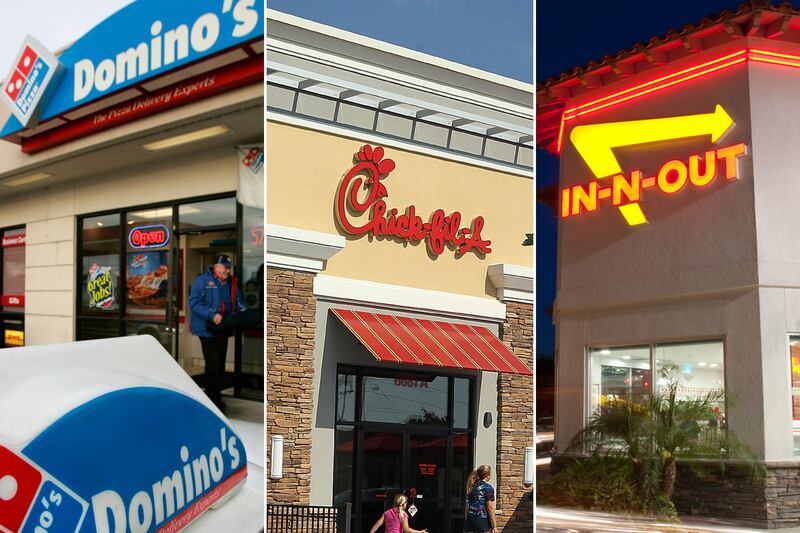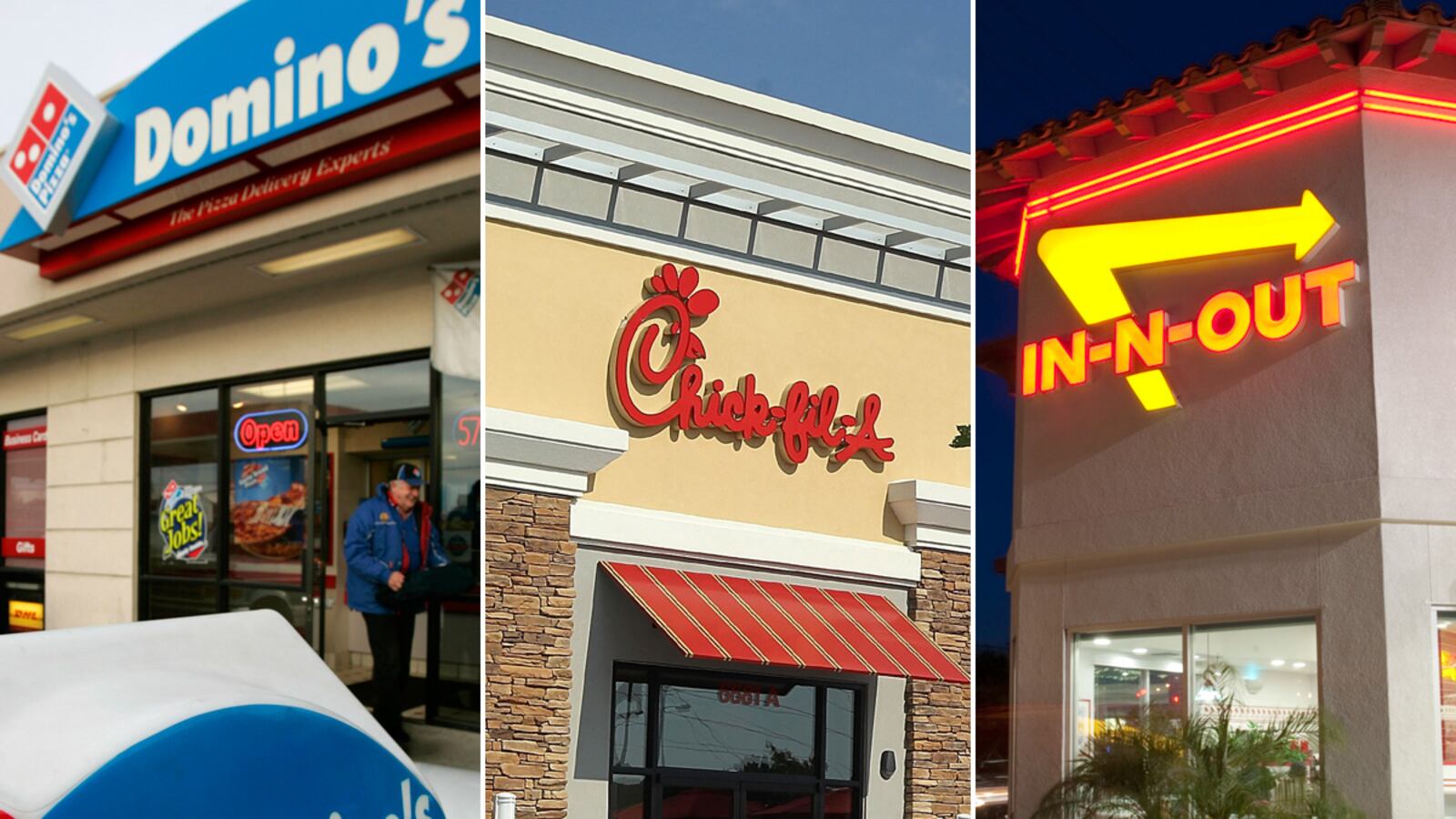The religion in Chick-fil-A’s recipe has never been a secret: its stores are closed on Sunday, and its logo has been splashed across the sponsorship banners at evangelical events for decades. The restaurant’s kids' meals once featured characters from Adventures in Odyssey, a popular Christian radio and television show produced by Focus on the Family. In case that wasn’t clear enough, the chain’s official statement of purpose is “To glorify God by being a faithful steward of all that is entrusted to us.”
The political side of its business took a little longer to come out: in January of last year, the media discovered Chick-fil-A was co-sponsoring a marriage conference with a group that filed a supportive amicus brief in the Proposition 8 fight in California. Earlier this month, the company’s charitable foundation was revealed to be funneling millions to groups that oppose gay marriage and, until recently, promoted gay “cure” therapies. A political firestorm has swirled around the company ever since.
It may seem like the war over Chick-fil-A—a tit-for-tat featuring boycotts answered by Christian groups plotting mass trips for chicken sandwiches and waffle fries—is taking the country’s much-lamented polarization to new heights. But fast-food chains might well have their own volume in the annals of American commercial weirdness. In-N-Out Burger, which commands a loyalty on the Pacific coast that rivals the intensity of the Southern affair with Chick-fil-A, once plastered its cups and wrappers with Bible verses, sending customers to the Internet to find out what agenda the company was hinting at.

In 2002, a chain email sensationalized the Islamic ties of Caribou Coffee, a Minnesota-based chain then owned primarily by the Bahrain-based First Islamic Investment Bank. The bank had a “Sharia advisory board” headed by Yusuf al-Qaradawi, a Muslim cleric associated with other organizations believed to be anti-Israel. The emails led to unofficial Jewish boycotts of Caribou. In 1989, the National Organization for Women announced a boycott of Domino’s Pizza, whose Catholic founder, Tom Monaghan, had begun funding anti-abortion crusades and allegedly aiding right-wing groups that opposed the Sandinistas in Nicaragua. Undeterred, Monaghan has continued to pour millions into the anti-abortion movement, and is currently building a fundamentalist Catholic village near Naples, Fla., where birth control and pornography are reported to be banned. (Monaghan sold Domino's in 1998, and hasn't owned shares since 2004, according to a company spokesman.)
There are few things more American than commercial hucksterism, which in its triumph often gives birth to cult-like management philosophies that unite God and mammon. S. Truett Cathy, Chick-fil-A’s Southern Baptist founder, walks in the long footsteps of businessmen who deployed idiosyncratic beliefs in the service of material success. This is the country where almost any religious flavor can be marketed successfully to millions. And there’s always millions more who will refuse to buy it.






